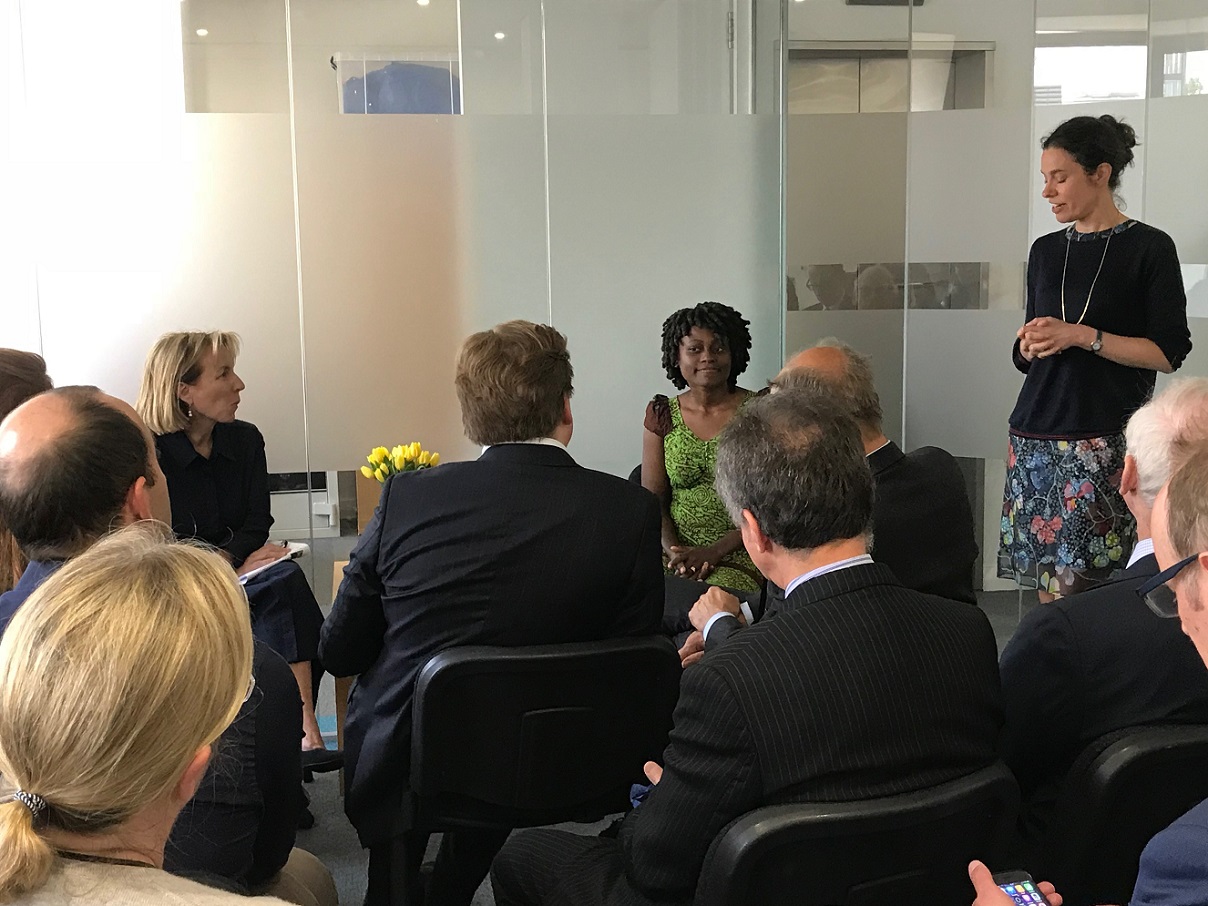BBC Today programme editor visits Hand in Hand International
24 May 2018

Hand in Hand CEO Dorothea Arndt (far-right) introduces Sarah Sands (far-left) and Janet Maro (middle).
One was among the UK’s most powerful journalists. The other, an agribusiness expert from Tanzania who works with some of the world’s poorest smallholder farmers.
But when Sarah Sands, editor of BBC’s Today programme, and Janet Maro, a trustee of Hand in Hand Eastern Africa, spoke in front of a small audience at Hand in Hand’s London office yesterday, they were united by a single, all-too universal issue: the gender pay gap.
Sands, previously the editor of London’s Evening Standard newspaper, joined the BBC just months before revelations over its 9 percent pay gap were made public, sparking a dispute over pay equality that continues to this day.
“I walked into a pay dispute which attracted a lot of publicity,” she said. “At first I thought as a semi-outsider that it looked like highly paid women complaining that men were even more highly paid by licence payers, but I came to see there was a deeper principle. How do you explain to your daughters that a man gets paid more than you for doing the same job?
“The BBC was on the front line of this discussion — some much more glaring differences followed as other organisations started to publish their pay gaps. Transparency is the start of change.”
Maro, who joined the Hand in Hand Eastern Africa board in 2016, five years after launching the not-for-profit Sustainable Agriculture Tanzania, agreed.
“You’ll definitely find that for a similar piece of work in a village, women still get paid much less than men,” she said. “That’s why Hand in Hand’s training isn’t only on the technical aspects of starting a business – keeping records, getting a loan – but on soft skills like setting goals and how to negotiate.”
An audience member asked if starting a business doesn’t merely add to the burden of women, already responsible for fetching water, picking firewood, taking care of children and cleaning the house.
“In many cases, men see that women are starting to earn an income. All of the sudden, they have a real financial incentive to help out around the household,” said Maro. “The husband knows she has to go to the market to open her shop and earn money the family needs. He knows the support system has to be there.”
Among men who’ve joined Hand in Hand, she said, attitudes can change even earlier.
“In Self-Help Groups, women gain confidence and start to express ideas. And men say, ‘You know what, she’s right!’” said Maro.
“Then they become their ideas,” added Sands, laughing.
